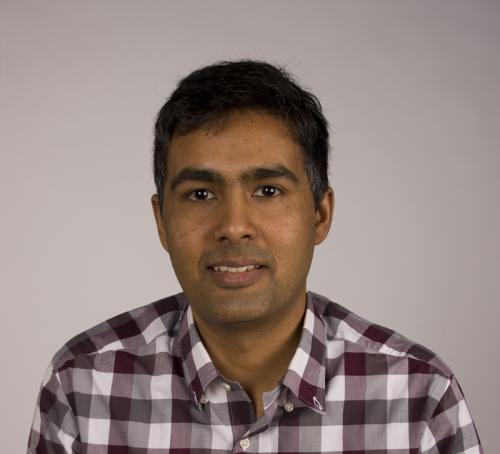
Yogesh Kulathu Awarded Prestigious €1.5 million ERC Starting Grant
The MRC PPU is proud to announce that Dr. Yogesh Kulathu has been recognized yet again for his outstanding work by receiving a highly sought after ERC Starting Grant. This €1.5 million grant will allow Yogesh to initiate an ambitious new project to understand how T-cell biology is regulated by the ubiquitin system.
Every year, the European Research Council (ERC) selects and funds the very best, creative researchers of any nationality and age, to run projects based in Europe. With a success rate of ~10%, ERC Starting Grants are very competitive and are awarded to the 'best up-and-coming research leaders working in Europe' to carry out pioneering frontier research. These grants come with significant support to enable awardees to pursue ground-breaking ideas and create excellent new research teams to tackle important research questions.
T lymphocytes are key cells of the adaptive immune system that protect us against pathogens and malignant cells. T cell activation, differentiation and immune responses are tightly controlled processes that are orchestrated by complex biochemical pathways. Deregulation of these biochemical pathways can result in lymphomas, autoimmune diseases and inflammation. Hence, understanding the biochemical events regulating lymphocyte biology have long been a topic of intense research.
As Dr. Kulathu explained 'Past efforts in this area have largely focussed on protein phosphorylation and we know little about the roles of other posttranslational modifications (PTMs) such as ubiquitin and ubiquitin-like modifiers. The ERC grant will allow my group to investigate how T cell function and immune responses are regulated by ubiquitin signalling networks.'
Professor Dario Alessi, Director of the MRC PPU expanded: 'This research will provide novel mechanistic insights into signal transduction in lymphocytes. Moreover, Yogesh's work has the potential to uncover T cell specific signalling nodes that can be manipulated to reengineer T cells for immunotherapy to treat cancer. We are all thrilled for Yogesh and his team.'
Every year, the European Research Council (ERC) selects and funds the very best, creative researchers of any nationality and age, to run projects based in Europe. With a success rate of ~10%, ERC Starting Grants are very competitive and are awarded to the 'best up-and-coming research leaders working in Europe' to carry out pioneering frontier research. These grants come with significant support to enable awardees to pursue ground-breaking ideas and create excellent new research teams to tackle important research questions.
T lymphocytes are key cells of the adaptive immune system that protect us against pathogens and malignant cells. T cell activation, differentiation and immune responses are tightly controlled processes that are orchestrated by complex biochemical pathways. Deregulation of these biochemical pathways can result in lymphomas, autoimmune diseases and inflammation. Hence, understanding the biochemical events regulating lymphocyte biology have long been a topic of intense research.
As Dr. Kulathu explained 'Past efforts in this area have largely focussed on protein phosphorylation and we know little about the roles of other posttranslational modifications (PTMs) such as ubiquitin and ubiquitin-like modifiers. The ERC grant will allow my group to investigate how T cell function and immune responses are regulated by ubiquitin signalling networks.'
Professor Dario Alessi, Director of the MRC PPU expanded: 'This research will provide novel mechanistic insights into signal transduction in lymphocytes. Moreover, Yogesh's work has the potential to uncover T cell specific signalling nodes that can be manipulated to reengineer T cells for immunotherapy to treat cancer. We are all thrilled for Yogesh and his team.'

